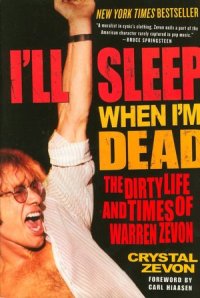I signed up on Goodreads.com a while back and, while my usage of the site has been sporadic at best, I have been trying to update my library over there on a regular basis. I don’t spend too much time – no long reviews – but I try to update my “Already Read” books and give each a quick rating. The rating system is quite simple, one through five stars, and is more than adequate for a quick review.
 However, I ran into a bit of a philosophical conundrum when updating my libraries this morning, specifically when it came to giving a rating to Primo Levi’s The Drowned and the Saved. Levi’s book is a sobering meditation on the Holocaust – the memory, the shame, the violence, the legacy. It is a brilliant book – as one who has read thousands of pages on World War II and the Holocaust, this may very well be one of the most insightful and important books I’ve read on the subject. In less than two hundred pages, it clearly makes a case for the Holocaust as the defining event of modernity and its implications on our past, our present, and our future. It’s a masterwork, one that should be read by any student of history, ethics, philosophy, or any other discipline that deals with humanity.
However, I ran into a bit of a philosophical conundrum when updating my libraries this morning, specifically when it came to giving a rating to Primo Levi’s The Drowned and the Saved. Levi’s book is a sobering meditation on the Holocaust – the memory, the shame, the violence, the legacy. It is a brilliant book – as one who has read thousands of pages on World War II and the Holocaust, this may very well be one of the most insightful and important books I’ve read on the subject. In less than two hundred pages, it clearly makes a case for the Holocaust as the defining event of modernity and its implications on our past, our present, and our future. It’s a masterwork, one that should be read by any student of history, ethics, philosophy, or any other discipline that deals with humanity.
So, when I plugged this book into Goodreads and it came time to give it a rating, I paused. One click of “Five Stars” and my review would go up right next to the user who started her review with “Preparing for the waterworks…SO SO SO GOOD.” As if it were the latest episode of Gossip Girls. Five stars – a rating paradigm that is used to rank restaurants, hotels, lip gloss on Amazon.com, and public toilets in China – seems in no way adequate to pass judgement on a book of such import. It’s almost obscene to place The Drowned and the Saved on the same continuum as such trivial nonsense, much less to place it on the same pedestal as one teenage boy might place the latest Transformer movie.
Lest I come across as an extremely pretentious curmudgeon, I fully appreciate the idea of reading (or watching TV or doing pretty much whatever) for entertainment. I’m happy to give five stars to a Grisham novel or a TV show. Yet, how do you even compare those to a book which attempts to understand (if such a thing is possible) the systematic and dispassionate massacre of six million people. By way of an example, I recently gave Michael Pollan’s The Omnivore’s Dilemma five stars on Goodreads. It was a wonderful book, one of those works that can fundamentally change the way one views the idea of food. But, by giving The Drowned and the Saved the exact same rating on the exact same platform, how could it not be seen as equating the two? As if the modern dilemma of whether to eat organic or factory farmed vegetables in any way compares to the moral Gordian knot that was the Holocaust. This rating system creates a false equivalency in which these two books are are placed on the same level.
I can’t blame Goodreads for this problem – it’s a genuinely good site which fosters dialogue and discussion about books of all sorts and this should be applauded. I’m still uncomfortable, however, when it comes to those rare works that tackle issues which in no way compare to the other 99.9 percent of books available. I see no other practical way around this problem for the moment other than, when it comes to certain books, to opt out altogether: I gave no rating on Goodreads to The Drowned and the Saved.








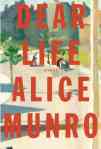
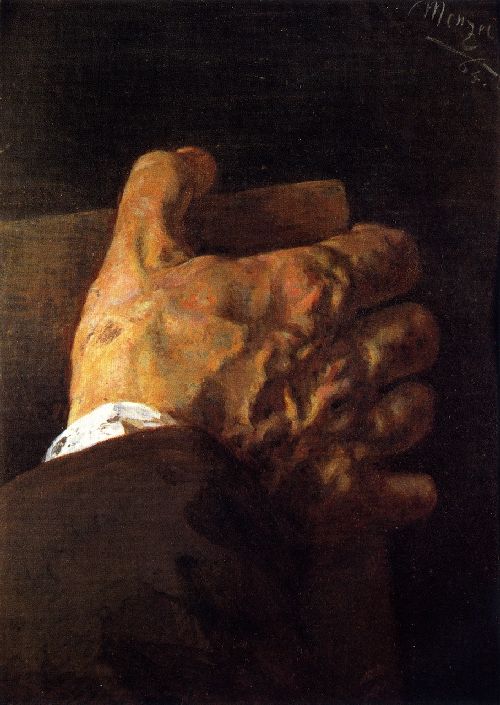
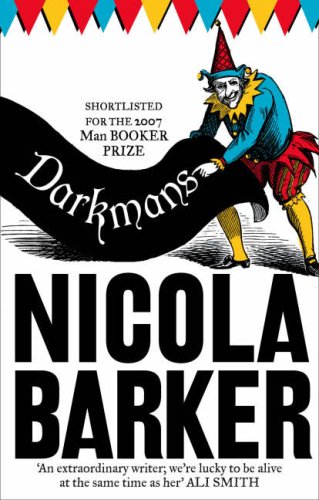



 Ostensibly a mystery about a missing woman, this book is a scathingly funny and black-hearted satire about a marriage gone bad in a culture of economic decline and social shallowness. Through the use of several very unreliable narrators, the story keeps you guessing through it’s brilliant set-up and into it’s rewarding conclusion. The characters are, for the most part, despicable but they’re human, they’re interesting, and they’ll make you uncomfortable by how close they come to reminding you of someone you know – or, perhaps, yourself.
Ostensibly a mystery about a missing woman, this book is a scathingly funny and black-hearted satire about a marriage gone bad in a culture of economic decline and social shallowness. Through the use of several very unreliable narrators, the story keeps you guessing through it’s brilliant set-up and into it’s rewarding conclusion. The characters are, for the most part, despicable but they’re human, they’re interesting, and they’ll make you uncomfortable by how close they come to reminding you of someone you know – or, perhaps, yourself.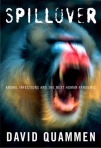 Hypochondriacs beware – if you read this, you may never again be comfortable doing the following: walking in the forest, riding on an airplane, eating chicken, staying in a hotel, taking a taxi, or generally interacting with any other living thing (human or otherwise) for the rest of your life. The title refers to the phenomenon of an animal disease ‘spilling over’ into a human population where it either sputters out unnoticed (countless, unnamed times in human history), sporadically erupts causing localized devastation before burning out (Ebola, Marburg) or goes on to wreak long-term and widespread havoc on humanity (AIDS, influenza). Heavy topics, but Quammen keeps things interesting and surprisingly funny – in a dark sort of way. I’ll leave you with my favorite quote from the book: “Advisory: If your husband catches an ebolavirus, give him food and water and love and maybe prayers but keep your distance, wait patiently, hope for the best – and if he dies, don’t clean out his bowels by hand. ” Sage advice we all can live by.
Hypochondriacs beware – if you read this, you may never again be comfortable doing the following: walking in the forest, riding on an airplane, eating chicken, staying in a hotel, taking a taxi, or generally interacting with any other living thing (human or otherwise) for the rest of your life. The title refers to the phenomenon of an animal disease ‘spilling over’ into a human population where it either sputters out unnoticed (countless, unnamed times in human history), sporadically erupts causing localized devastation before burning out (Ebola, Marburg) or goes on to wreak long-term and widespread havoc on humanity (AIDS, influenza). Heavy topics, but Quammen keeps things interesting and surprisingly funny – in a dark sort of way. I’ll leave you with my favorite quote from the book: “Advisory: If your husband catches an ebolavirus, give him food and water and love and maybe prayers but keep your distance, wait patiently, hope for the best – and if he dies, don’t clean out his bowels by hand. ” Sage advice we all can live by. I don’t think remember the “young adult” genre existing when it would have been age appropriate for me (although I suppose it must have), but I don’t regularly (ever) dip into this pool of books for reading material. With all the hype surrounding this series, and the release of the movies, I took a chance and was pleasantly surprised. The story was addictive and taut and the characters were appropriately complex. To be sure, this series went downhill from the first installment, but The Hunger Games was certainly one of the best written stories I read last year.
I don’t think remember the “young adult” genre existing when it would have been age appropriate for me (although I suppose it must have), but I don’t regularly (ever) dip into this pool of books for reading material. With all the hype surrounding this series, and the release of the movies, I took a chance and was pleasantly surprised. The story was addictive and taut and the characters were appropriately complex. To be sure, this series went downhill from the first installment, but The Hunger Games was certainly one of the best written stories I read last year.

